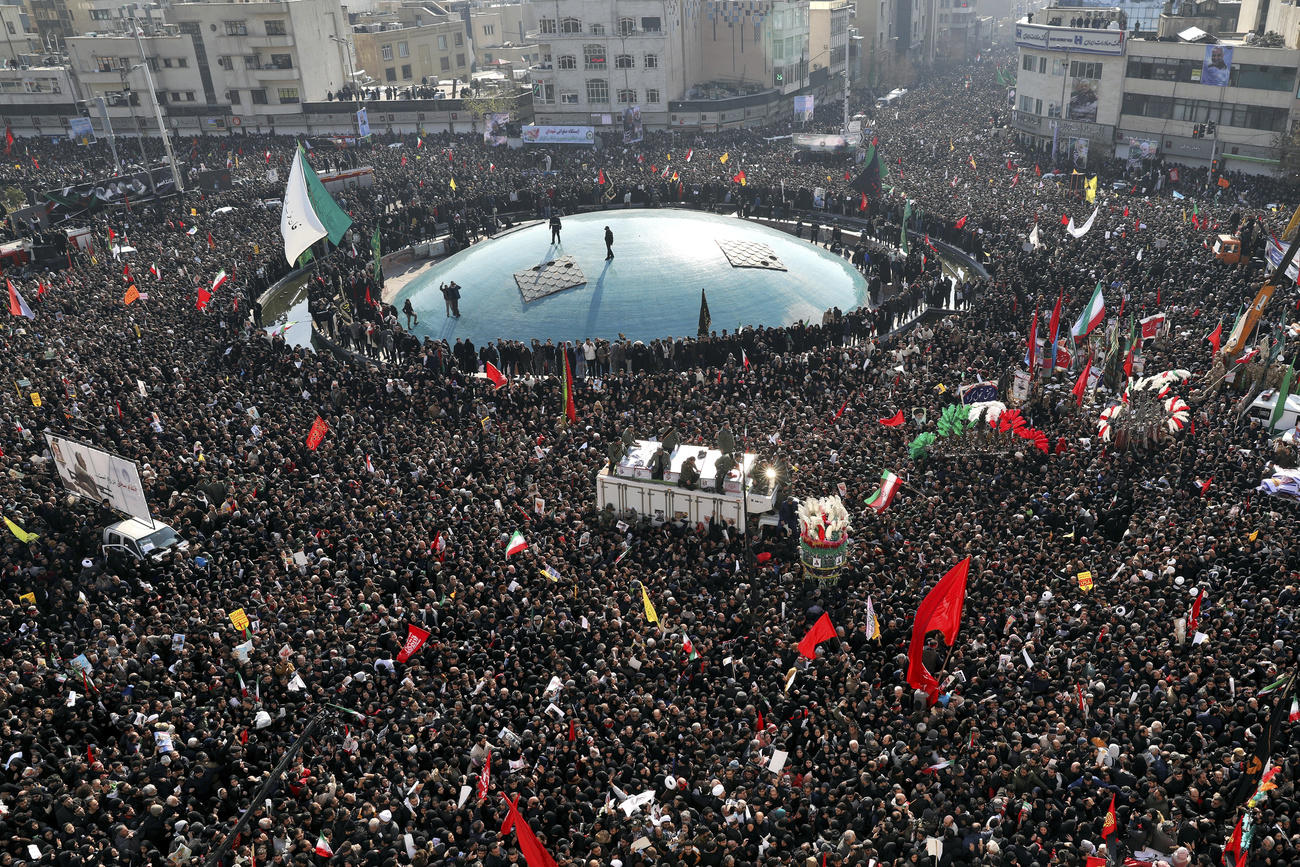
Tehran remains cautious about Swiss humanitarian channel

Iran has welcomed a Swiss humanitarian channel to bring food and medicine to the country, but downplayed its political importance in a row with the United States.
“This is a small step and we thank the Swiss government for its efforts (….) but his channel is not a sign of America’s goodwill at all,” Iran’s foreign minister, Javad Zarif, is quoted by Iran’s Student News Agency.
The statement comes after the Swiss and the US government last week announced the start of trial operations to help supply Swiss goods to Iran which has been struggling with economic sanctions imposed by Washington.
The project, in the works since late 2018, aims to provide a secure channel for essential aid goods to reach Iran without falling foul of the sanctions regime imposed.
The first trial began last Thursday with an initial payment for a shipment of cancer drugs and drugs required for organ transplants to Iran worth €2.3 million (CHF2.5 million), the Swiss government said.
On Friday, US Ambassador to Switzerland Ed McMullan praised the programme. “For the first time in history, we can be sure that the aid is really getting to Iranian people – and not being embezzled by the regime,” he told Swiss public broadcaster SRF.
Erwin Bollinger from the State Secretariat for Economic Affairs (SECO) also said that Swiss authorities were “proud and happy” about the channel, and that a wider-ranging version to allow Swiss firms conduct safe business in Iran would soon also be ready.
“There are still some technical and legal questions that must be clarified with the US, but it’s only a matter of a few weeks,” Bollinger said.
Food, medicine and other humanitarian supplies are exempt from sanctions that Washington reimposed last year after US President Donald Trump walked away from a 2015 international deal over Iran’s nuclear programme.
But the US measures targeting everything from oil sales to shipping and financial activities have deterred several foreign banks from doing business with the Islamic Republic – including humanitarian deals – just as Iran grappled with major protests.
Switzerland has been acting as a diplomatic intermediary between Iran and the US since 1980.

More
How ‘messenger’ Switzerland deals with the US and Iran

In compliance with the JTI standards
More: SWI swissinfo.ch certified by the Journalism Trust Initiative































You can find an overview of ongoing debates with our journalists here . Please join us!
If you want to start a conversation about a topic raised in this article or want to report factual errors, email us at english@swissinfo.ch.